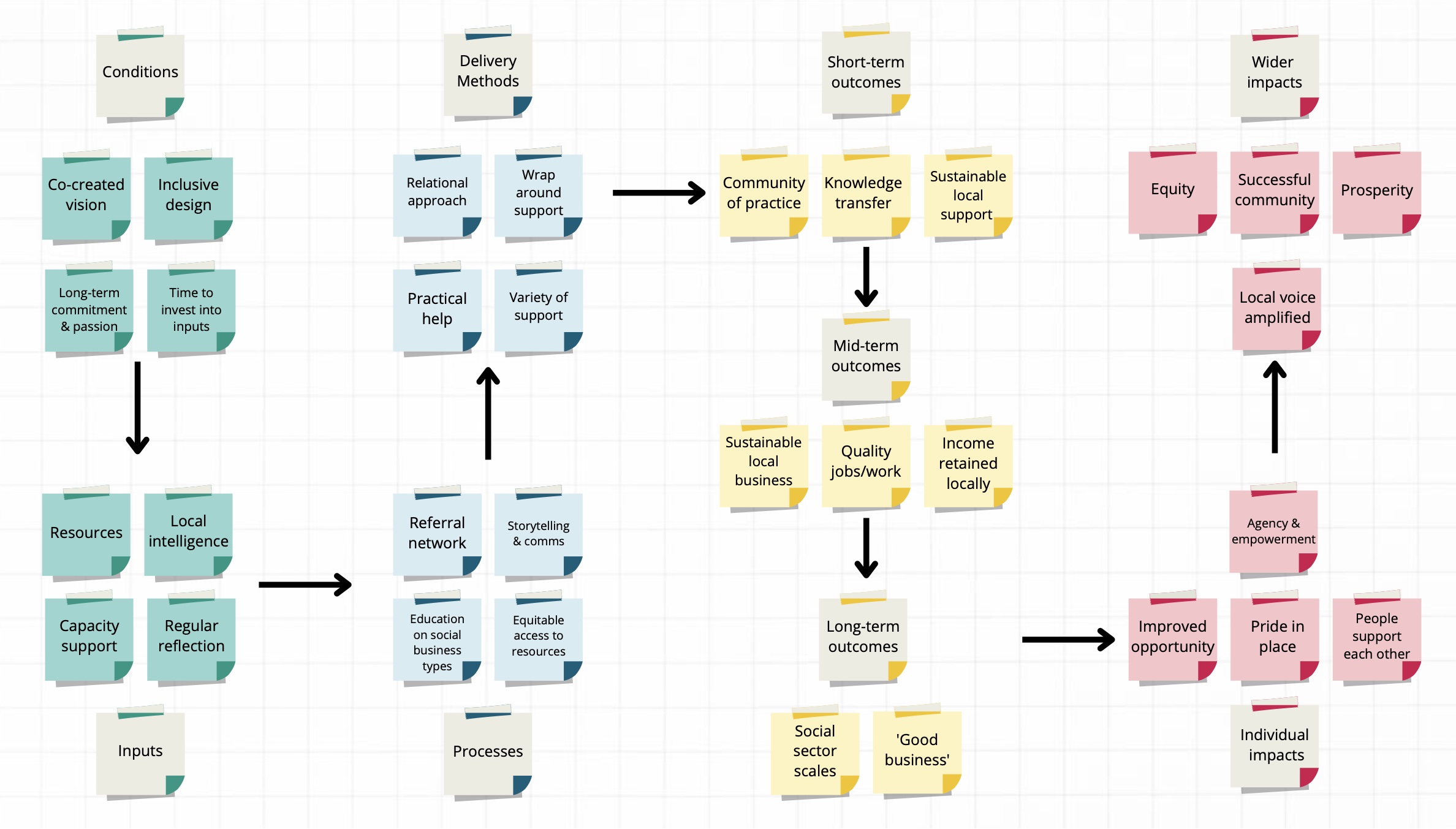
To create thriving local economies, communities need a relational business support ecosystem that harnesses the creativity and passion of local people.
The Empowering Places model of place-based business support has been created to enable local community anchor organisations, and commissioners of business support, to find ways of working together. Adopting this model encourages shared approaches to address the issues faced by the communities they serve.
The proven Empowering Places model is designed to take into account the historical context and current challenges facing local providers of support to entrepreneurs and social purpose businesses.
It is informed by practice and has been designed to address some of the failures of previous programmes to sustain their impact, and is particularly effective at engaging with people and communities around economic activities that seek to create a fairer and equitable economic, environmental and social future.
You can find out more about each element of the model by clicking the tiles below:
Conditions
These describe the conditions which need to be present, or created, for the model to be implemented successfully.
Click for examples of each condition.
Inputs
The inputs are what we have seen organisations provide or make use of to enable effective activation and delivery of the model.
Click for examples of these here.
Processes
These describe the processes which underpin the activities.
Click for examples of these processes.
Activities
These are the delivery methods which the research shows are most effective in achieving the outcomes of the model and are supported by the inputs and conditions outlined.
Click for more about delivery methods.
Outcomes
These show the expected outcomes from successful implementation of the model over the short, medium and long term.
Click for more detail on these here.
Impacts
These describe both the short to medium term impact to individuals as a result of achieving the outcomes of the model, along with wider societal impacts which could be achieved over the longer term if the model is implemented successfully and sustained effectively.
Click for more information.
Foundations and assumptions
On each of the logic model element pages, you will find a set of foundations and assumptions. These underpin the model and are taken from the research here. You can use these as a checklist to determine whether more work needs to be done in these areas for the model to work in your locality.
Case studies and Tools
Each logic model element page also has links to specific case studies and tools which support, or can be used to support, the ideas identified for that logic model element.
